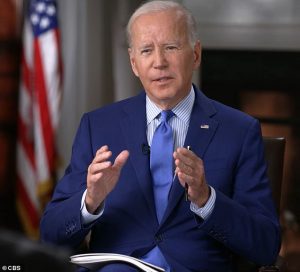
Tiger Global is raising a private equity fund that will target $6bn in investment, less than half the amount raised for a prior fund, as the prominent technology investor slows its once breakneck pace.
The fundraising began on Thursday, according to a letter sent to limited partners and obtained by the Financial Times. Chase Coleman, Tiger’s billionaire founder, has been seeking investors willing to buy into the technology downturn that has battered his group’s portfolio.
Tiger’s preceding private equity fund of $12.3bn closed in February. The $6bn private fund is below early targets of about $8bn, according to a person familiar with the situation.
People close to Tiger believe the new fund’s smaller scale of investments will match lower valuations after the market rout this year.
The group has promised it will invest less than half the fund in its first year, a more measured pace than the prior fund, which is already mostly invested. The size of Tiger’s typical investment has also been nearly halved to about $30mn.
The letter said Tiger would attempt to take advantage of opportunities such as secondary sales of private technology companies whose values have fallen in the financial market downturn.
The diminished fundraising and defensive approach comes as the $63bn in assets Tiger confronts upheaval. Its flagship fund fell about 50 per cent this year to July, according to documents sent to limited partners, while it has marked down its more than $45bn portfolio of private technology investments each month this year, it recently told investors.
The fund group has also experienced turnover among investment staff. On Monday, Tiger announced that former partner John Curtius, who headed the firm’s software and business services private equity investments, would be leaving.
Curtius had been expected to temporarily stay on following the announcement to ensure an orderly handoff of his portfolio to others inside Tiger. “John will work closely with other investment team members over the coming months to transition his responsibilities,” Tiger said on Monday.
However, as of Thursday he was no longer an employee, said three people familiar with the situation. Curtius is planning to launch an investment firm called Cedar Investment Management, people with knowledge of the matter said.
Curtius had been one of Tiger’s most prolific investors, leading over 100 venture capital investments, according to PitchBook data, including investments made as recently as September 27.
This week, Tiger Global fielded questions at meetings with limited partners who sought to get a better understanding of Curtius’s sudden departure, said two people directly involved with the matter.
Coleman and Scott Shleifer, head of Tiger’s private investment business, decided this summer that Curtius would leave the firm amid concerns over the autonomy he was seeking in managing an increasingly large portfolio, people close to Tiger said.
Internally and in discussions with limited partners, Tiger has described itself as a collaborative firm, where investors overseeing public and private investments from the US to Brazil, India and China work closely together to identify investments.
People close to Curtius painted a different picture. In recent months, he had been looking for the opportunity to start his own firm to capitalise on a dramatic reset in valuations across the industry, they said.
Tiger Global and Curtius declined to comment.

